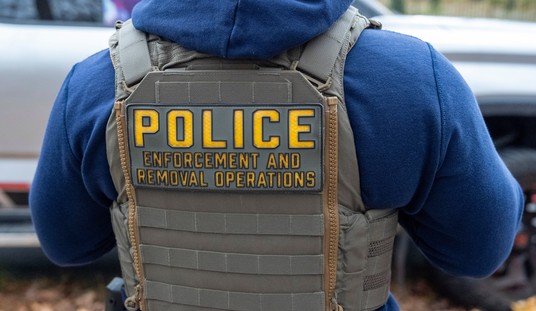While the decision by U.S. District Court Judge David A. Ezra in Cargill v. BATFE late last week hasn’t received nearly as much attention as the ruling by his California colleague striking down that state’s ban on “large capacity” magazines, Ezra’s decision is a critically important one… especially for the tens of thousands of federally licensed firearms dealers across the country.
Central Texas Gun Workers founder and Second Amendment advocate Michael Cargill sued the BATFE and Department of Justice last fall, arguing that a 2021 executive branch order by Joe Biden to enforce a “zero tolerance” policy on violations of the Gun Control Act, along with the agencies’ official guidance on how to implement that policy, has created a situation where the federal government has negated and is ignorning the fact that violations are supposed to be “willful” in order for the ATF to revoke an FFL. The Justice Department offered a litany of excuses as to why the new order shouldn’t be subject to litigation, claiming that Cargill doesn’t have standing to sue, that his claims aren’t ripe for judicial review, has “failed to exhaust administrative prerequisites to administrative review,” and that even if he does have standing there’s nothing illegal or unconstitutional about the “zero tolerance” approach touted by Biden.
In an order denying the government’s motion to dismiss, however, Judge Ezra adopted a report and recommendations by United States Magistrate Judge Dustin Howell, who found compelling reasons to allow Cargill’s lawsuit to continue. According to Howell (and Ezra), the “announcement of the new policy, followed by the enactment of a revised enforcement order” does represent a final agency action that’s subject to judicial review, Cargill and other gun dealers have shown themselves to be the “object of an increased regulatory burden sufficient to establish standing”, and that because this new policy is being enforced, it is indeed ripe for review from the federal judiciary. Quoting from Ezra’s order:
Defendants maintain that Plaintiffs’ claims fail on the merits because the ATF’s actual enforcement policies comply with the requirements of the Gun Control Act, and to the extent Plaintiffs contend that the ATF’s pattern or practice of enforcement diverges from its written policies, Defendants assert that Plaintiffs have failed to allege that any such policy exists.
The Court will also reject this objection upon de novo review. To the extent Defendants’ arguments are based on something other than review of the merits—which the Court will not do at this stage of the litigation—the Court finds Plaintiffs have adequately pleaded claims for relief to survive dismissal at the Rule 12(b)(6) stage. Plaintiffs have pled that Defendants’ new enforcement policy increases chances for the likelihood of license revocations for simple paperwork errors, among others, rather than for actual willful violations. The use of the word “willful” in the new enforcement policy, according to Plaintiffs, broadly includes non-willful actions and thus violates the Gun Control Act and the Second Amendment. Without the chance for the parties’ further discovery on these issues, the Court will not yet rule on the merits but finds that— taking the allegations true at this stage of the case—Plaintiffs have adequately pleaded their claims to survive dismissal.
It’s important to note that the judge hasn’t yet determined if the claims by Cargill are true, merely that he and his attorneys should have the opportunity to prove them in court. It’s undeniable, however, that the number of license revocations has soared since Biden announced his crackdown on “rogue” gun dealers back in 2021. As Cargill noted in his initial complaint, back when the ATF truly was looking for “willful” violations of the law rather than assuming innocent clerical errors are intentional, revocations were few and far between; just 40 revocation orders out of nearly 6,000 inspections in 2020, for example.
After Biden’s announcement, on the other hand, the ATF issued a memo to all Special Agents in Charge and Directors of Industry Operations that “alerted them that single violations should now result in revocation proceedings.” The result? At least 273 revocation orders have been handed down, and the rate appears to be increasing as time goes on.
Cargill is worried that the new approach will put him and others out of business. In his initial complaint, Cargill acknowledged that the last time the ATF inspected his shop in 2018, agents found “four different types of violations, in a total of 35 transactions, for an error rate of about 0.5%.” Instead of moving to revoke his license, the agency instead instructed him to take “simple corrective actions,” which Cargill says he’s complied with. Still, if the ATF were to find those exact same issues under the new policy, the FFL says he’d likely be subjected to a revocation proceeding.
Specifically, as applied to the last inspection, all four of the types of violations listed in the inspection report would fall under the ATF’s new policy regarding falsification of records and would result in a revocation recommendation, despite the fact that none of the violations were actually willful.
The ATF would recommend revocation despite the fact that there is no evidence Plaintiffs intended to falsify the records or were indifferent to their duty to fill out the forms accurately.
Further, none of these paperwork errors resulted in a transfer of a firearm to a prohibited possessor.
It is unreasonable and inconsistent with the statute to require a licensee to be perfect when seeking to comply with the Act. This is especially true given that Plaintiff’s business has expanded to more than 8,000 transactions a year since his last inspection.
In fact, as Cargill’s attorneys point out, the ATF could use the results of his 2018 inspection to move to revoke his license now. Cargill’s initial complaint referenced another FFL whose license was revoked a full fifteen months after his last inspection, and only after Biden made his announcement about a “zero tolerance” policy at the ATF.
This isn’t about selling guns under the table or willfully turning a blind eye to straw purchases. Minor paperwork errors amounting to less than 1% of a dealer’s total business are leading the ATF to revoke licenses and remove the livelihood of hundreds of FFLs across the country. Michael Cargill is fighting back against this executive branch overreach, and it’s a very good sign that a federal judge has agreed that he deserves his day in court despite the DOJ’s vociferous objections.









